Filter by
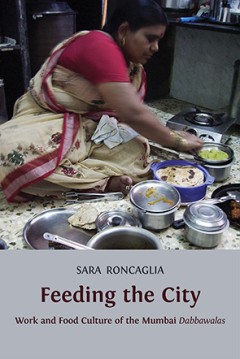
Feeding the city: work and food culture of the Mumbai Dabbawalas
Every day in Mumbai 5,000 dabbawalas (literally translated as "those who carry boxes") distribute a staggering 200,000 home-cooked lunchboxes to the city’s workers and students. Giving employment and status to thousands of largely illiterate villagers from Mumbai's hinterland, this co-operative has been in operation since the late nineteenth century. It provides one of the most efficient deli…
- Edition
- -
- ISBN/ISSN
- 9781909254022
- Collation
- xv, 214 p. : ill. : ind. ; 24 cm
- Series Title
- -
- Call Number
- 394.12 RON f
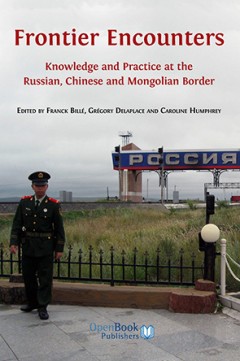
Frontier encounters: knowledge and practice at the Russian, Chinese and Mongo…
China and Russia are rising economic and political powers that share thousands of miles of border. Yet, despite their proximity, their practical, local interactions with each other — and with their third neighbour Mongolia — are rarely discussed. The three countries share a boundary, but their traditions, languages and worldviews are remarkably different. Frontier Encounters presents a w…
- Edition
- -
- ISBN/ISSN
- 9781906924898
- Collation
- ix, 280 p. : ill. : ind. ; 24 cm
- Series Title
- -
- Call Number
- 327.51047 FRO f
Understanding well-being data : improving social and cultural policy, practic…
‘Following the data’ is a now-familiar phrase in Covid-19 policy communications. Well-being data are pivotal in decisions that affect our life chances, livelihoods and quality of life. They are increasingly valuable to companies with their eyes on profit, organisations looking to make a social impact, and governments focussed on societal problems. This book follows well-being data back cent…
- Edition
- -
- ISBN/ISSN
- 9783030729370
- Collation
- xxiii, 373 p. : color, ill.
- Series Title
- -
- Call Number
- 362.1 OMA u
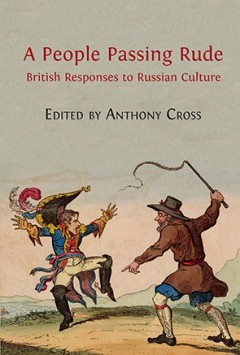
A people passing rude: British responses to Russian culture
Described by the sixteenth-century English poet George Turbervile as "a people passing rude, to vices vile inclin’d", the Russians waited some three centuries before their subsequent cultural achievements—in music, art and particularly literature—achieved widespread recognition in Britain. The essays in this stimulating collection attest to the scope and variety of Russia’s influence…
- Edition
- -
- ISBN/ISSN
- 9781909254121
- Collation
- xvi, 331 p.: illustrations
- Series Title
- -
- Call Number
- 947.084 CRO a
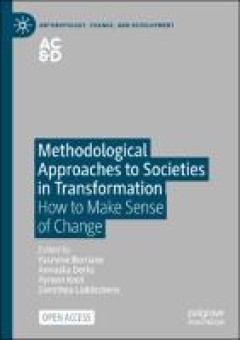
Methodological approaches to societies in transformation: how to make sense o…
This open access book provides methodological devices and analytical frameworks for the study of societies in transformation. It explores a central paradox in the study of change: making sense of change requires long-term perspectives on societal transformations and on the different ways people experience social change, whereas the research carried out to study change is necessarily limited to …
- Edition
- -
- ISBN/ISSN
- 9783030650674
- Collation
- xiii, 282 p. : ill.
- Series Title
- Anthropology, Change, and Development,
- Call Number
- 338.9 LUD m
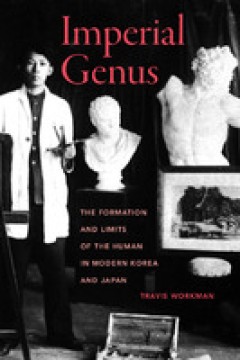
Imperial genus : the formation and limits of the human in modern Korea and Japan
"Imperial Genus begins with the turn to world culture and ideas of the generally human in Japan’s cultural policy in Korea in 1919. How were concepts of the human’s genus‑being operative in the discourses of the Japanese empire? How did they inform the imagination and representation of modernity in colonial Korea? Travis Workman delves into these questions through texts in philosophy, lit…
- Edition
- -
- ISBN/ISSN
- 9780520964198
- Collation
- vii, 307 p. : ill,
- Series Title
- -
- Call Number
- 951.903 WOR i

Measuring emission of agricultural greenhouse gases and developing mitigation…
This open access book is an outcome of the collaboration between the Soil and Water Management & Crop Nutrition Section, Joint FAO/IAEA Division of Nuclear Techniques in Food and Agriculture, Department of Nuclear Sciences and Applications, International Atomic Energy Agency (IAEA), Vienna, Austria, and the German Science Foundation research unit DASIM (Denitrification in Agricultural Soils: In…
- Edition
- -
- ISBN/ISSN
- 9783030553968
- Collation
- xlvi, 337p. : ill.
- Series Title
- -
- Call Number
- 363.73874 MOH m
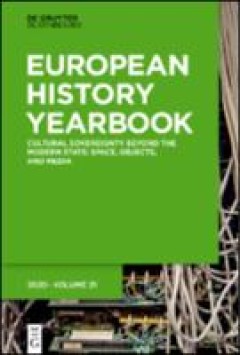
Cultural sovereignty beyond the modern state : space, objects, and media
In the past 25 years or more, political observers have diagnosed a crisis of the sovereign nation state and the erosion of state sovereignty through supranational institutions and the global mobility of capital, goods, information and labour. This edition of the European History Yearbook seeks to use "cultural sovereignty" as a heuristic concept to provide new views on these developments since …
- Edition
- -
- ISBN/ISSN
- 9783110679151
- Collation
- II, 181 p.
- Series Title
- Jahrbuch für Europäische Geschichte / European History Yearbook, Band 21
- Call Number
- 320.15 CUL c
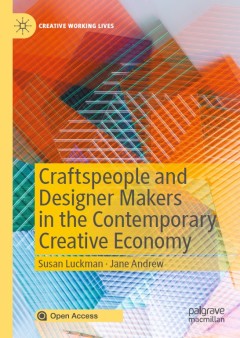
Craftspeople and designer makers in the contemporary creative economy
This open access book explores the experience of working as a craftsperson or designer maker in the contemporary creative economy. The authors utilise evidence from the only major empirical study to explore the skills required and the challenges facing contemporary makers in an increasingly crowded marketplace. Drawing upon 180 interviews with peak organisations, established and emerging makers…
- Edition
- -
- ISBN/ISSN
- 9783030449797
- Collation
- xv, 259p. : ill.
- Series Title
- -
- Call Number
- 338.6425 LUC c
Regional and Local Development in Times of Polarisation: Re-thinking Spatial …
Despite the emphasis of the European Regional Policy on territorial cohesion, regional disparities have been increasing within Europe in the past years. The metropolitan areas in almost all countries are considerably growing while regions outside of agglomerations are stagnating or even declining. Against this background this book aims to provide an understanding of the underlying processes of …
- Edition
- 1st ed. 2019.
- ISBN/ISSN
- 9789811311901
- Collation
- XXIV, 382 p
- Series Title
- -
- Call Number
- 304.2 REG r
 Computer Science, Information & General Works
Computer Science, Information & General Works  Philosophy & Psychology
Philosophy & Psychology  Religion
Religion  Social Sciences
Social Sciences  Language
Language  Pure Science
Pure Science  Applied Sciences
Applied Sciences  Art & Recreation
Art & Recreation  Literature
Literature  History & Geography
History & Geography